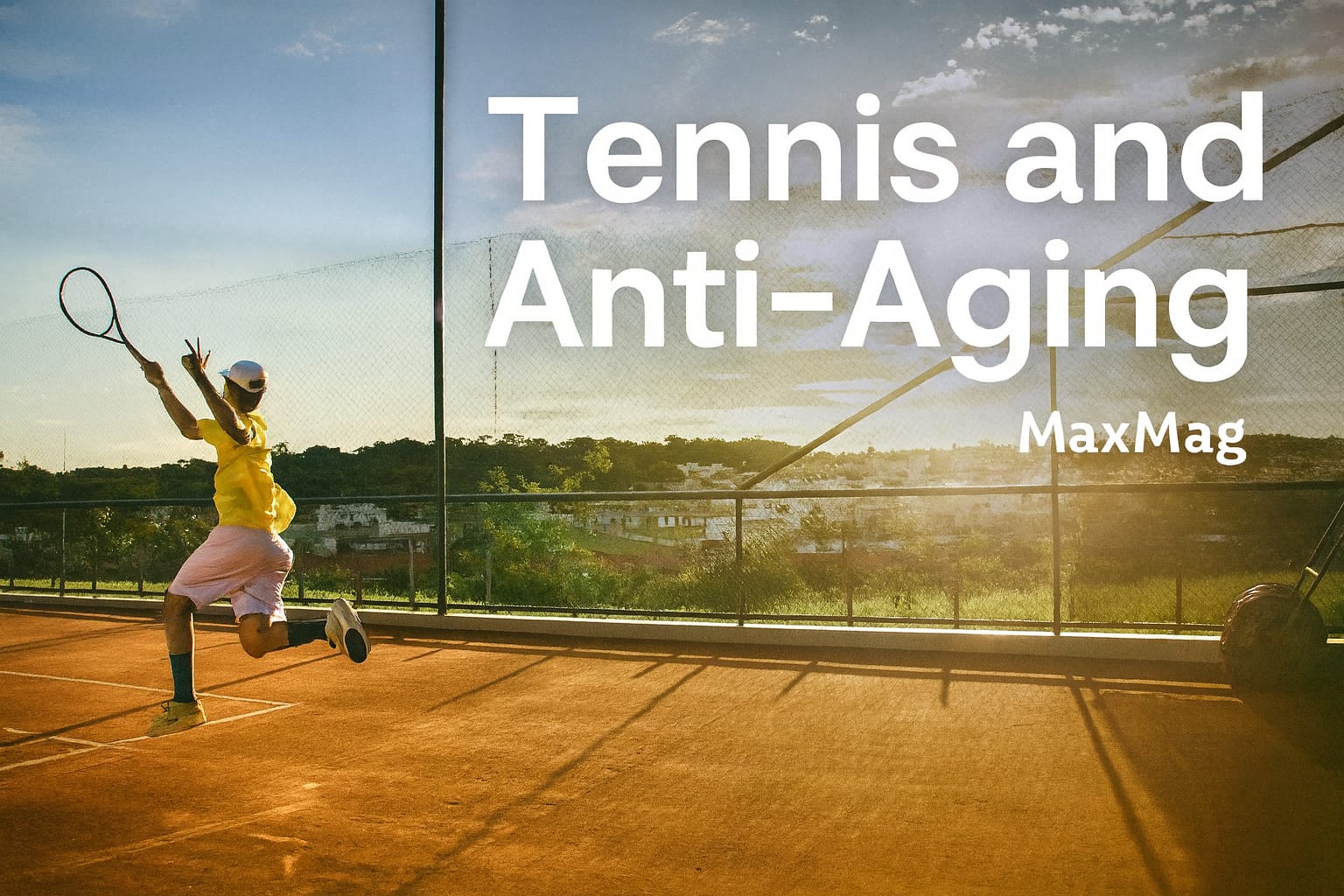
Aging is inevitable, but how we age is shaped by our daily choices. Beyond creams, supplements, or trendy diets, one of the most effective tools for slowing down the passage of time may already be on the nearest court: tennis. Science increasingly confirms that tennis is not just a recreational pastime, but a lifestyle habit that preserves vitality, sharpens the mind, and adds years to life. By combining physical effort, mental challenge, and social connection, tennis becomes one of the most powerful allies in the battle against time.
The Science of Tennis and Anti-Aging
Researchers across the world have examined the long-term impact of tennis on health. A landmark review titled Tennis the Sport for Life, published on medRxiv, revealed that playing tennis increases life expectancy, enhances cardiovascular health, and strengthens bones. More importantly, the study highlights how the sport stimulates memory and cognitive flexibility — two key factors in healthy aging through sports.
Evidence also comes from developmental psychology. A study in Frontiers in Human Neuroscience compared children aged 8–12 who played tennis for over a year with those who had less exposure. The results showed that tennis players displayed superior working memory and adaptability, proving that the sport nurtures brain function early in life.
Equally impressive are findings related to seniors. Edith Cowan University researchers observed that people over 60 who played tennis reacted faster to external stimuli than peers who only walked or swam. These results underline that the benefits of tennis for longevity extend far beyond fitness — they influence cognitive sharpness, independence, and overall quality of life.
Finally, the Copenhagen City Heart Study, cited by National Geographic, found that tennis may extend life expectancy by as much as nine years, surpassing many other popular sports. Clearly, tennis and anti-aging are more than a catchy phrase: they are a scientifically validated reality.
Physical Benefits that Slow the Clock
Tennis is a full-body workout that blends endurance, strength, and coordination. Each match involves sprints, lunges, rotations, and stretches, all of which train different muscle groups while protecting joint mobility. Unlike high-impact sports, tennis allows for gradual intensity adjustments, making it accessible even for beginners and older adults.
Consistent play strengthens bones, a crucial factor in preventing osteoporosis, especially in seniors. Cardiovascular health also benefits from the dynamic movements, with improved circulation reducing risks of hypertension and heart disease. By promoting balance, flexibility, and agility, tennis helps maintain the body’s natural resilience, slowing the physical aspects of aging. This blend of activity and adaptability is what makes tennis for seniors a safe yet effective path to longevity.
Psychological and Social Advantages
Aging is not only about the body — it is also about the mind. Here lies another dimension of the sport’s anti-aging magic. Tennis demands strategic thinking, quick decision-making, and continuous adaptation to an opponent’s moves. These mental challenges activate neural pathways, helping delay cognitive decline and even warding off memory-related conditions.
Equally important is the social element. Unlike solitary workouts, tennis naturally connects people. Whether through doubles matches, club activities, or friendly games, the sport encourages interaction, laughter, and teamwork. Social bonds are a known predictor of healthy aging through sports, since they reduce stress, combat loneliness, and boost overall life satisfaction. For many, stepping onto the court is as much about companionship as it is about exercise.
The psychological benefits of tennis also include stress reduction and mood improvement. Physical exertion releases endorphins, while the outdoor environment provides natural light and vitamin D. Together, these factors elevate mental health, creating a sense of youthful energy that persists long after the match is over.
A Lifelong Sport for Healthy Aging
Unlike extreme sports that peak in youth, tennis adapts across decades. Children gain coordination and discipline, adults enjoy fitness and stress relief, and seniors preserve strength and independence. Because intensity can be scaled, tennis remains accessible to nearly everyone, making it a lifelong partner in the pursuit of vitality.
Even casual, low-intensity play offers rewards. A friendly match once or twice a week can support cardiovascular health, maintain flexibility, and enhance mood. For those who embrace a more competitive style, the sport builds stamina and strength while sharpening reflexes. This versatility explains why tennis and anti-aging are so closely linked: the sport grows with you, ensuring benefits at every stage of life.
Outdoor play adds another bonus. Exposure to fresh air and sunlight strengthens immunity and boosts bone health, complementing the physical and psychological benefits of tennis. Simply put, each rally becomes an investment in both present joy and future well-being.
Conclusion: Tennis as the Natural Elixir
While no activity can stop the march of time, tennis demonstrates that we can choose how gracefully we move through it. The sport is not only about chasing balls across a court — it is about cultivating vitality, mental sharpness, and social joy. For those seeking healthy aging through sports, tennis stands out as one of the most complete options available.
By engaging in tennis regularly, we strengthen the body, challenge the mind, and nourish the spirit. Science proves what players have long felt: every serve, volley, and rally contributes to a longer, happier, and more vibrant life. Tennis and anti-aging are inseparable partners — together, they offer not just more years to live, but more life within those years.





